Of the 223 charges filed against people without a home address, just seven were for drug-related offenses, including four charges for possession of scheduled drugs and three for drug trafficking.
Eleven were for disorderly conduct because the person refused to submit to arrest, and nine others were for other disorderly conduct.
Although they are attention-getting, violent charges are relatively uncommon. Six arrests included an assault charge, five included an intimidation charge and eight included criminal mischief. A man listed as transient was arrested June 27 on Water Street for assault, aggravated assault, disorderly conduct and criminal threatening after allegedly attacking three women.
The most common charge, on the other hand, was violating conditions of release — or breaking the stipulations that allow a person to be released from custody, often through bail. Under Maine law, that can include restrictions on who a person can interact with, where they can live and how they can travel as well as requiring reporting to law enforcement on a regular basis. Breaking those terms can result in jail time and thousands in fines.
Augusta police charged a homeless person for violating the conditions of their release 43 times between Jan. 1 and May 19. On six occasions, a homeless person was arrested on that charge alone.
“Violating conditions of release is the single most frequent charge, period, in our criminal justice system,” said Carol Garvan, the legal director for the American Civil Liberties Union of Maine. “It creates a loop for this sub-population — really, for everyone. It’s an unbelievably frequently charged thing in Maine.”
Despite prolific arrest numbers, law enforcement efforts have been unproductive, police Chief Kevin Lully said in a June 16 memo.
“We have not identified a defined place for the unhoused to go, and therefore the Officers/City Staff are in a cyclical pattern of repeatedly responding to numerous private and public properties,” Lully wrote.
Garvan said that outcome is to be expected.
Arresting and charging homeless people saddles them with fines and criminal records, she said, making long-term employment, finding stable housing and maintaining financial stability infinitely more difficult. Landlords often use criminal records screening to deny housing applications for an otherwise qualified applicant, and employers can consider criminal records when making a final hiring decision.
“Criminalizing being unhoused, it immediately creates the loop,” she said. “It might temporarily be able to push an unhoused person out of sight for a minute, but it does nothing to solve the underlying problems and actually makes them much worse.”
People who experience homelessness also face immense health risks from repetitive police encounters and move-along orders, especially when no low-barrier shelter is available.
A 2023 American Medical Association study found “no feasible scenario” where involuntary displacement of people experiencing homelessness does not harm their health outcomes. Instead, the study found such orders could contribute to 15% to 25% of deaths among homeless people in the next decade.
Benjamin Rhye Guffany, who has been homeless for about four years, recently sought care at MaineGeneral Medical Center after a foot infection left him unable to walk from place to place. After four hours on IV antibiotics, he was discharged — miles from his new tent site and with no way to get back.
He was lucky, he said, that a friend picked him up. Not everyone gets that luxury.
He’s using crutches to get around now, and he was in good spirits during a Saturday morning breakfast at Universalist Unitarian Community Church in Augusta. He, Meserve and about 50 other people who are homeless gather there weekly for a fresh meal and a place to relax, and an outlet to charge their phone, if they have one.

But without consistent access to health care and with the constant threat of being forced to walk to another living space, Guffany told friends over breakfast, he’s worried about his still-swollen foot. He’s already lost a finger to an infection.
“I’m afraid I’ll lose the foot, too,” he said.
‘IT’S ILLEGAL TO BE HOMELESS IN AUGUSTA’
In that June 16 memo, Lully told City Manager Jared Mills that he plans the department’s patrols downtown to mirror the movement of the city’s homeless population. He said homeless people were most often there “during times of services being provided downtown.”
He wrote that city staff recently asked the Colonial Theater, a historic Water Street cinema currently undergoing renovation, to remove outdoor staging when it is not in use, in response to complaints that people were sleeping on and under the staging. The Bread of Life Soup Kitchen, one of the few places homeless people can get a consistent meal, is three doors down from the theater.
The memo also said officers used bikes, cruisers and utility vehicles to check secluded areas in the city’s parks and recreation areas, attempting to clear encampments or other ordinance-violating activity.
Officers attempt to survey these areas “daily,” Lully said; Meserve said she sees a police officer just about every day.
Criminal trespass was the second-most common charge for people experiencing homelessness from Jan. 1 to May 19, the arrest records showed. About 28% of Augusta’s arrests of homeless people included that charge.
Trespassing charges most often come after a notice to leave the property, like those given to Meserve and others. State law says any person who “remains in any place in defiance of a lawful order to leave” commits a Class E offense, punishable by up to six months of incarceration and a $1,000 fine.
Meserve said that often happens almost immediately; people who refuse to leave with their tent and belongings are quickly arrested.
Before a notice can be delivered to a person on city-owned land, a city representative must request it, Lully said. Often, he said that comes from a parks and recreation staff member who sees an encampment and calls for an officer to respond to the scene with them.
That same process applies for private land. Landowners have discretion to request a trespass notice or not; they could allow people experiencing homelessness to be on their property.
Nancy Fritz, a member of the Augusta Task Force on Homelessness, said trespassing can sometimes be a necessity in Augusta, a city with a ban on camping but without a low-barrier year-round shelter.
Aaron “Gig” Wiedemann has been homeless for about 20 years and has become a leader for the city’s homeless community, through both experience and a willingness to do so. He participated often in the Augusta Task Force on Homelessness‘ process over the past year.
He said much of the criminalization of homelessness and the consistent trespassing and move-along orders are driven by visibility — that Augusta doesn’t want homeless people to be seen in the city, pushing homeless people from place to place while not providing a low-barrier shelter.

“They look at us like we’re pieces of shit,” he said. “One officer straight up told me: ‘It’s illegal to be homeless in Augusta.'”
Thanks to a 6-3 U.S. Supreme Court decision last year, Augusta can enforce its camping ban and serve trespass notices despite not having available shelter space.
Previously, courts might have ruled that enforcement violated the Eighth Amendment’s ban on cruel and unusual punishment because it penalized people for their homeless status, rather than for any action. But in Grants Pass v. Johnson, the conservative majority on the Supreme Court said the Eighth Amendment applies only to sentencing, not to what a government may criminalize in the first place.
Long before the Grants Pass decision, though, municipalities across Maine criminalized homelessness.
Garvan said towns and cities began enacting camping bans and encouraging move-along orders as “visible homelessness” rose starting around 2015. The number of people experiencing homelessness only grew during the COVID-19 pandemic, when the cost of living in Maine skyrocketed. Waterville began enforcing a camping ban last spring, clearing tents and pushing the city’s shelter beyond its capacity.
But, Garvan said, these bans should not be encouraged just because they have been allowed by the U.S. Supreme Court.
“Whatever resources you’re using on this criminalization, it may take resources away from other public safety functions by the police, and in general, it’s a decision by a municipality about how it uses its resources,” Garvan said.
Lully said the department’s interactions with homeless people are informed by a protocol established by the Office of the Maine Attorney General in 2022 that encourages officers to connect homeless people with service providers, instead of sending them into an already-backlogged criminal justice system.
Lully said the department’s community response specialist Dawn Kearns and contracted community response partner Ashlee Kimball have been invaluable in implementing that protocol, building relationships and pointing homeless people toward services.
“If we didn’t have them, I’m not sure what the unhoused population would look like right now,” Lully said. “I can tell you right now the amount of contacts that they have and the services that they provide on a daily basis saves lives every day.”
That support system is not without its flaws.
Jennifer Houghton has been homeless for about a year. After her first interaction with Kearns, getting a case manager took nine months— and even then, Houghton said Augusta has few resources a case manager could connect her to.
“There is no net to catch us,” she said.
Even when people are directed toward available services, those efforts face headwinds from community members who continually request heavier police presence and call the police for trespassing, leading to more interactions between police and homeless people.
Police have initiated trespassing-related interactions just 26 times this year, Lully said, compared to the more than 500 calls this year for criminal trespassing, many of which have come from downtown businesses and private property owners.

Police are obligated to respond to those situations, he said. Many police interactions that result in a trespass notice or other kind of enforcement don’t end in charges, Lully said — police do have some discretion whether to charge someone.
“We don’t want to actively seek people out, to perpetually displace them from one place to the other to the other within the community,” he said. “The other side of that is, as people are calling in — property owners or people that just work, live, or are doing some other form of business or recreating here in the community — they have a right to being safe and they have a right to peaceful existence as well.”
Downtown business owners were a major driving force in increased police patrols downtown in 2023. Homeless people were damaging the reputation of downtown and scaring away customers, business owners said.
Business leaders also successfully opposed a new 40-bed shelter last year on Green Street. The Augusta Planning Board unanimously denied the proposal because of concerns about the character of the neighborhood.
It would have been the city’s only low-barrier, 24-hour, full-service shelter — a need that several homeless people said was critical.
Ehrin Simanski owns Lisa’s Legit Burritos at the corner of Bridge and Water streets downtown and was another member of the homelessness task force. She said she was initially very frustrated with homeless people coming into her restaurant and deterring customers from downtown, citing disruptive public intoxication and drug use. Other business owners, she said, feel similarly.
But, she said her experience on the task force helped shift her perspective. She said she understands the necessity of working to solve homelessness now, rather than venting frustration about homeless people causing disruption downtown.
“The first step is realizing that these issues are not going away,” Simanski said. “It’s hard to fight something, and it’s hard to fight for something when you haven’t seen the whole picture.”
Regardless, she said the issues business owners were having with homeless people downtown have been less serious so far this summer, one way or another.
“Whatever we’re all doing, it’s working,” she said.
‘SHAME ON US’
Fritz, a member of the Augusta Task Force on Homelessness — which delivered 19 recommendations to city officials earlier this year — and the director of homeless initiatives in former Gov. John Baldacci’s cabinet, said housing affordability has to be top-of-mind.
In fact, the task force’s top recommendation was to focus on housing as the solution to homelessness. A safe, stable, affordable place to live “is the foundation from which all other support becomes possible,” the group said.
“It’s not simply about houses that we can afford to buy or apartments that we can afford to rent,” Fritz said, “but there needs to be the availability of affordable housing. And then for many folks who have experienced homelessness, they need some support to be in that housing and be successful in that housing.”
Law enforcement agencies and courts also lose out when homelessness becomes criminalized, Garvan said; court costs and even overtime for police officers can add up.
A housing-first approach is three times less expensive than criminalization, according to the Interagency Council on Homelessness — the federal homelessness agency President Donald Trump gutted in a March 14 executive order.
The agency highlighted communities like Hennepin County, Minnesota — where a Streets to Housing program helps reduce barriers to safe emergency shelter and permanent housing, and San Diego County, California — where specialists provide on-site health care to homeless people — as examples for criminalization alternatives. Both communities have seen improved outcomes for homeless people.
The will to recognize those cost savings and provide services for homeless people — instead of repeatedly criminalizing them — is the responsibility of the entire community, Fritz said.
“Shame on us — and by us, I mean our larger social structure,” Fritz said. “We need to figure this out. I think we put the burden on people experiencing homelessness, rather than the burden on society as a whole for how we deal with this significant problem of homelessness.”
Fritz said she will head the city’s committee to ensure it implements the homelessness task force’s recommendations. Simanski will also be a member.
First and foremost, Fritz said Augusta should implement the committee’s recommendation to open a low-barrier shelter. She said the city’s limited transitional housing and winter warming center do help many homeless people, but they’re often not a service hub and can be difficult to get into or stay in.
Houghton said her husband once inadvertently brought a pipe used for smoking cannabis into the warming center. The pipe had never been used, and they did not have any cannabis with them, she said, but Houghton’s husband nevertheless was kicked out of the center after a search.
Staff at the warming center offered to let her stay. She declined, and she and her husband spent the winter outside, despite hearing stories about other homeless people freezing to death in the snow and ice.
Every night, she covered herself in an emergency blanket and hoped she would wake up.
Every morning, against the odds, she did.
“Somebody needs to fix the system,” Houghton said. “You can put a Band-aid on it, but it’s still going to bleed out.”

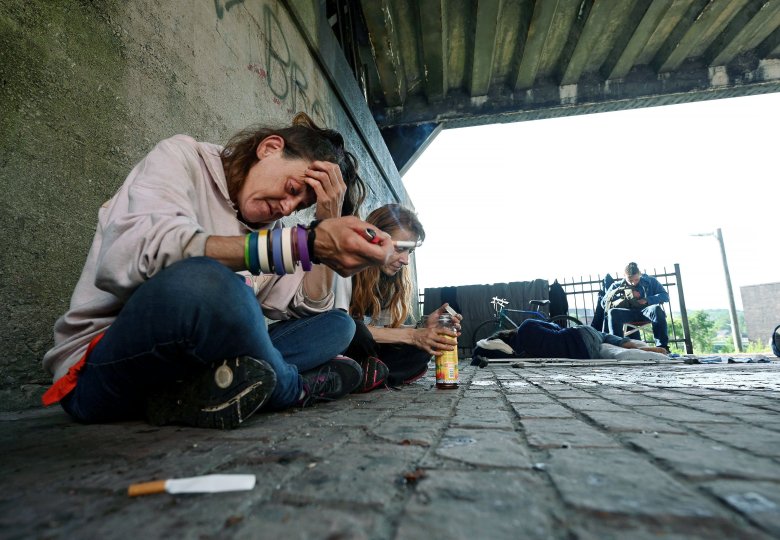
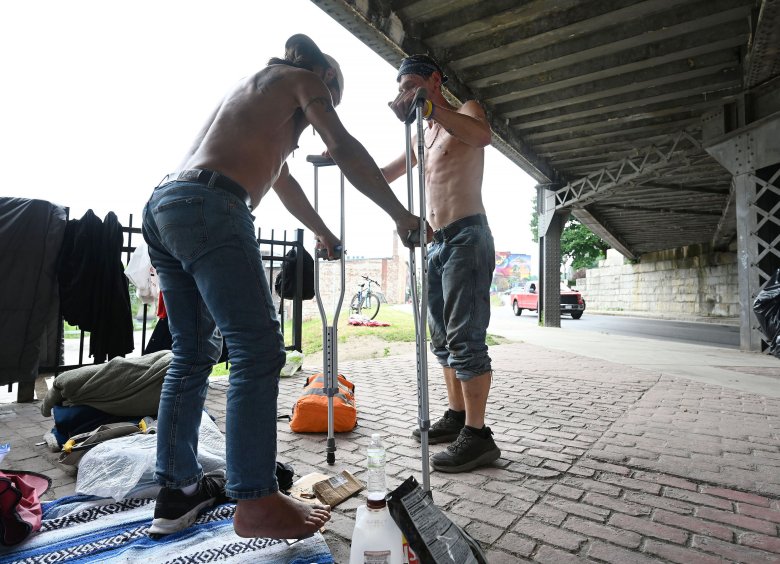
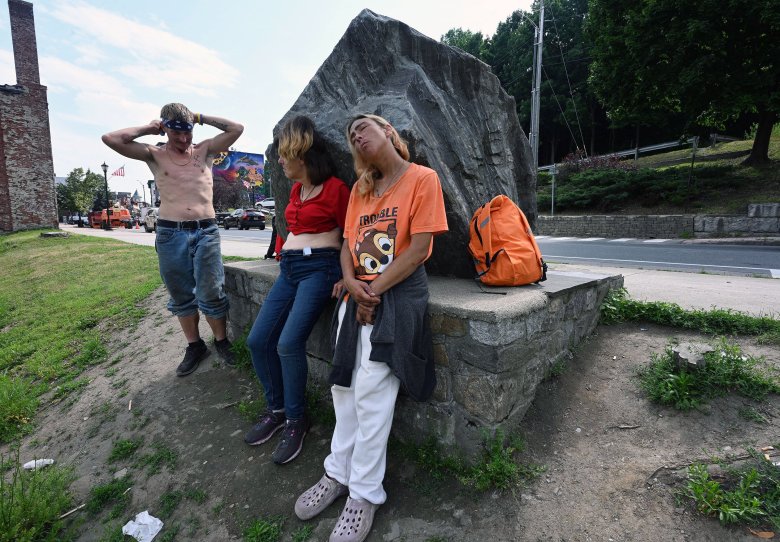
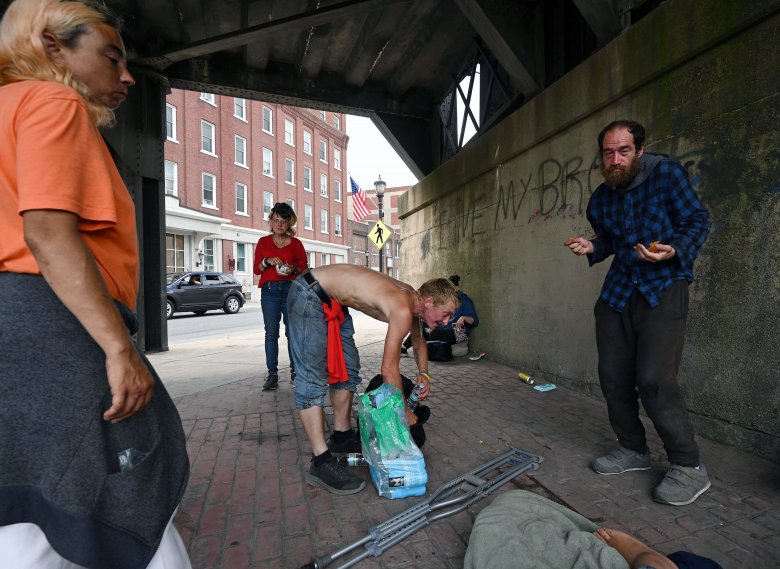
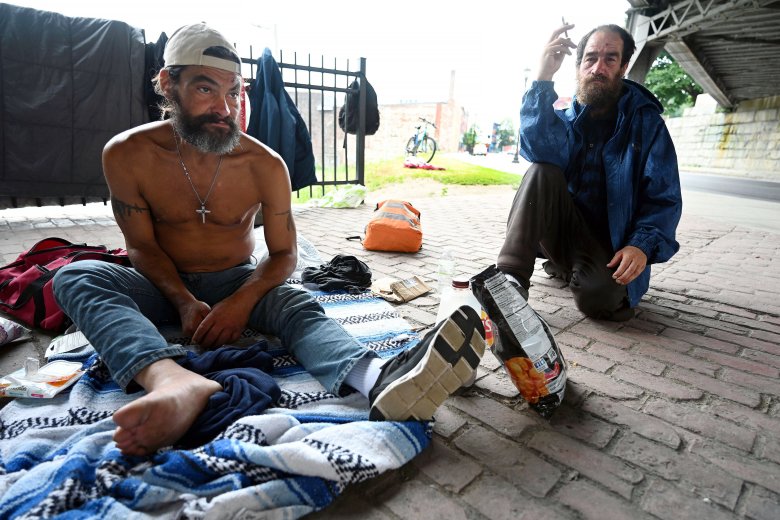
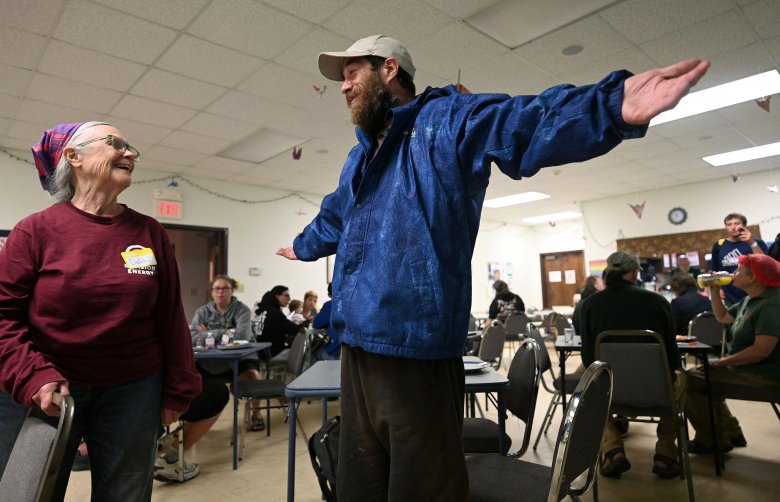
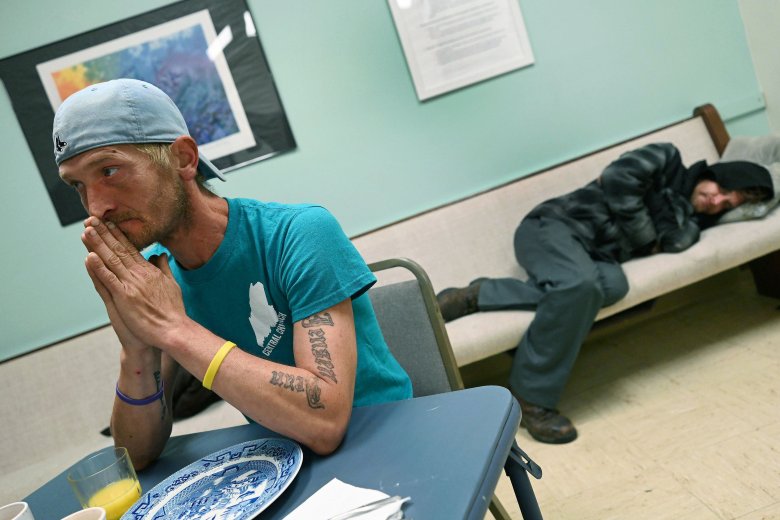

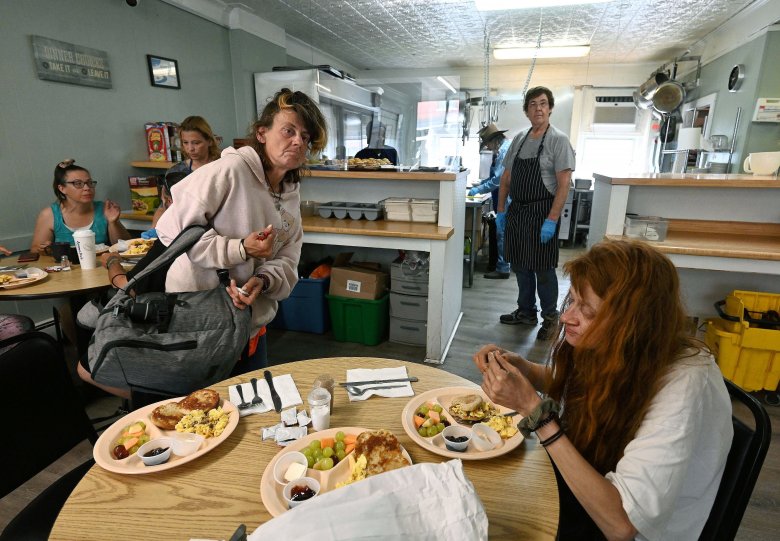
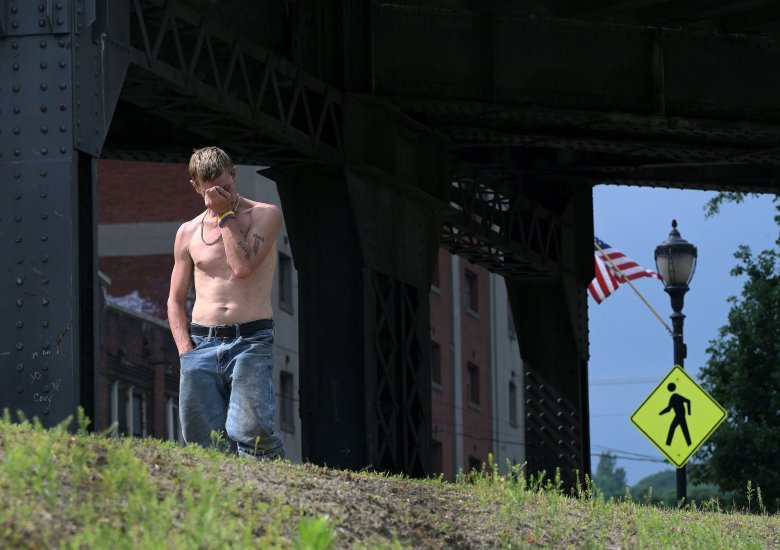
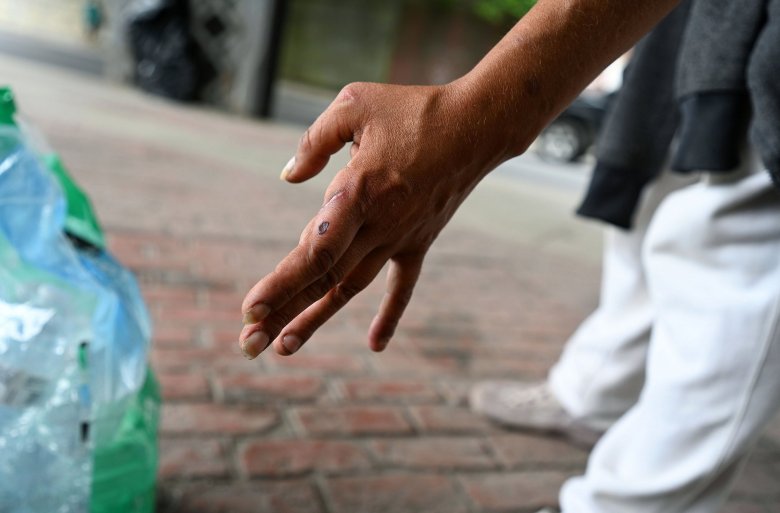
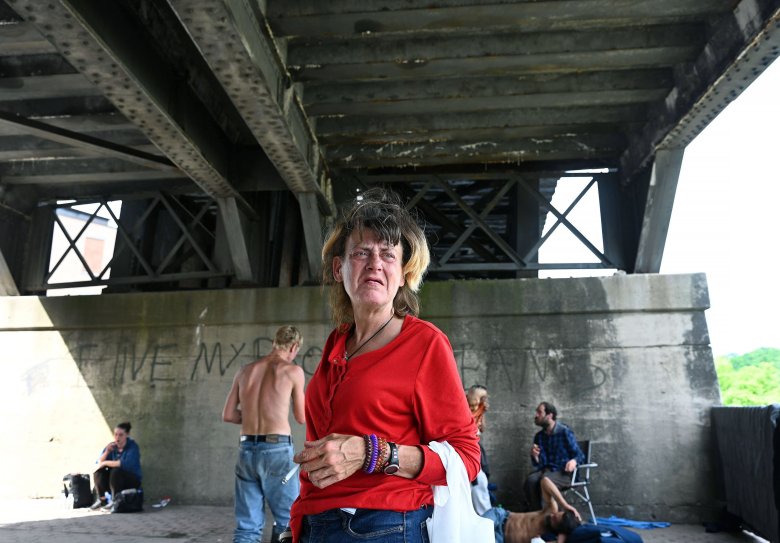
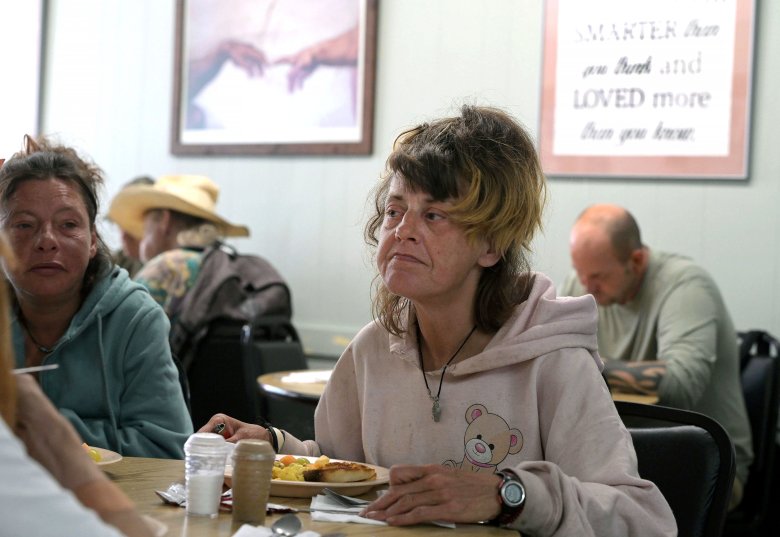
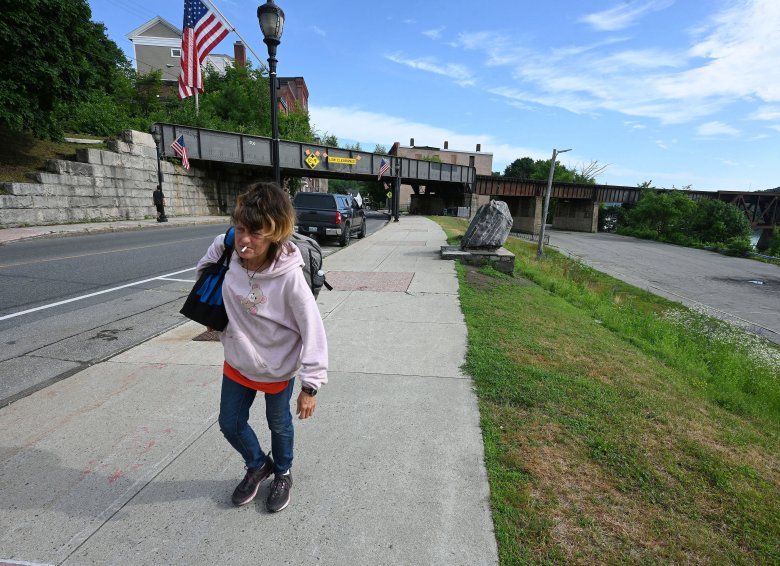
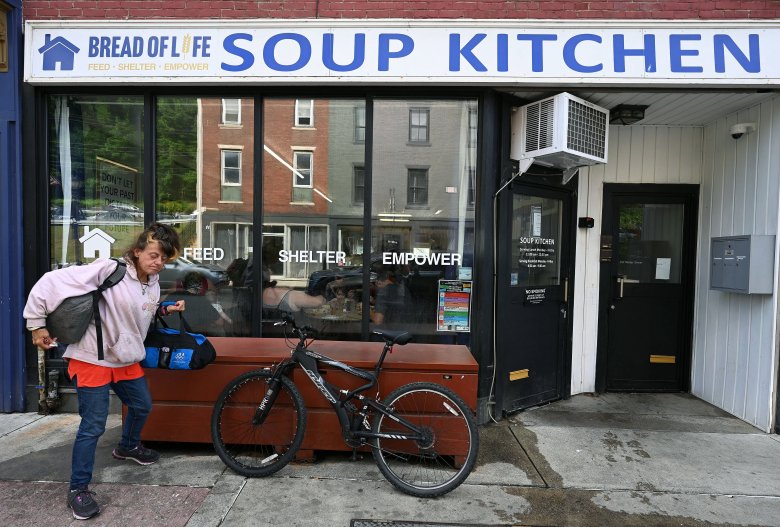
We invite you to add your comments. We encourage a thoughtful exchange of ideas and information on this website. By joining the conversation, you are agreeing to our commenting policy and terms of use. More information is found on our FAQs. You can update your screen name on the member's center.
Comments are managed by our staff during regular business hours Monday through Friday as well as limited hours on Saturday and Sunday. Comments held for moderation outside of those hours may take longer to approve.
Join the Conversation
Please sign into your CentralMaine.com account to participate in conversations below. If you do not have an account, you can register or subscribe. Questions? Please see our FAQs.